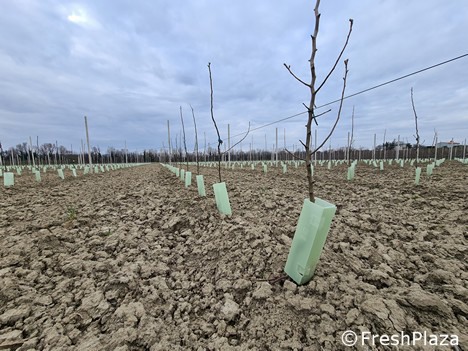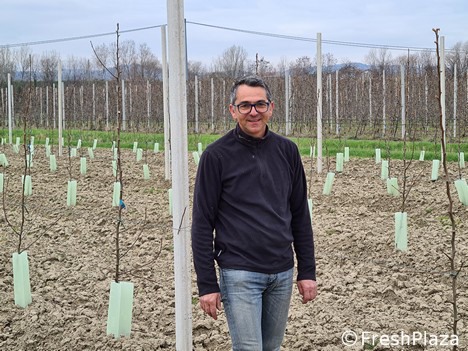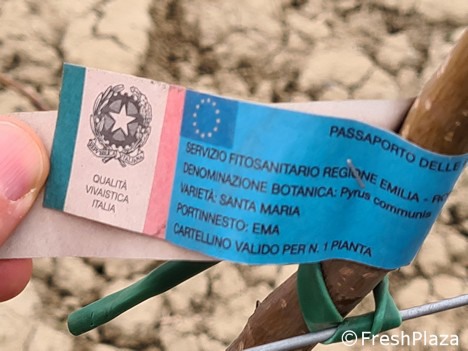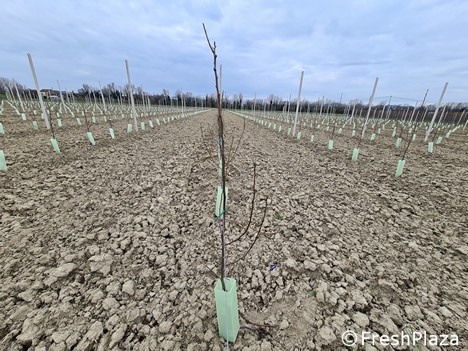In three years, 22 hectares of peaches and nectarines have disappeared, to be replaced by hard fruit, stone fruit and other types of fruit. "I think this is the first year in the history of our farm that we have no peaches and nectarines. We are sad about it, but we have to look ahead and in this period other crops are more profitable," said Giovanni Castagnoli from Cesena, Italy.
 3000 pear trees of the Santa Maria variety have been planted
3000 pear trees of the Santa Maria variety have been planted
The Castagnoli company planted two hectares with Santa Maria pear trees in November 2020. It is expected that the pears can be harvested at the end of July, after harvesting the Carmen variety and before starting with the William. Castagnoli has planted 50 hectares of its 100 hectares for the cultivation of apples, pears, plums and kiwis.
 Giovanni Castagnoli
Giovanni Castagnoli
"Last year, the frost caused great damage. I have calculated that in terms of plums, this cost us 160 tons of fruit. The outcome for stone fruit was slightly better."
About 3,000 Santa Maria pear trees have been planted. To protect them from wild animals, the trees have been surrounded by a plastic protection, which will be removed when the plants are fully grown. The first harvest is expected in July 2022.

"Soon we will connect the irrigation system, but irrigation alone is not enough. It is very important to dose the nutrients at the right time," said Castagnoli.

Castagnoli is a member of Orogel Fresco and has been able to benefit from cost reductions thanks to the Common Market Organisation. "The problem is that it is difficult to generate an income, because if you only have costs, you cannot make a profit. Sadly, we have not been able to make a living out of the peaches and nectarines over the past 20 years."
